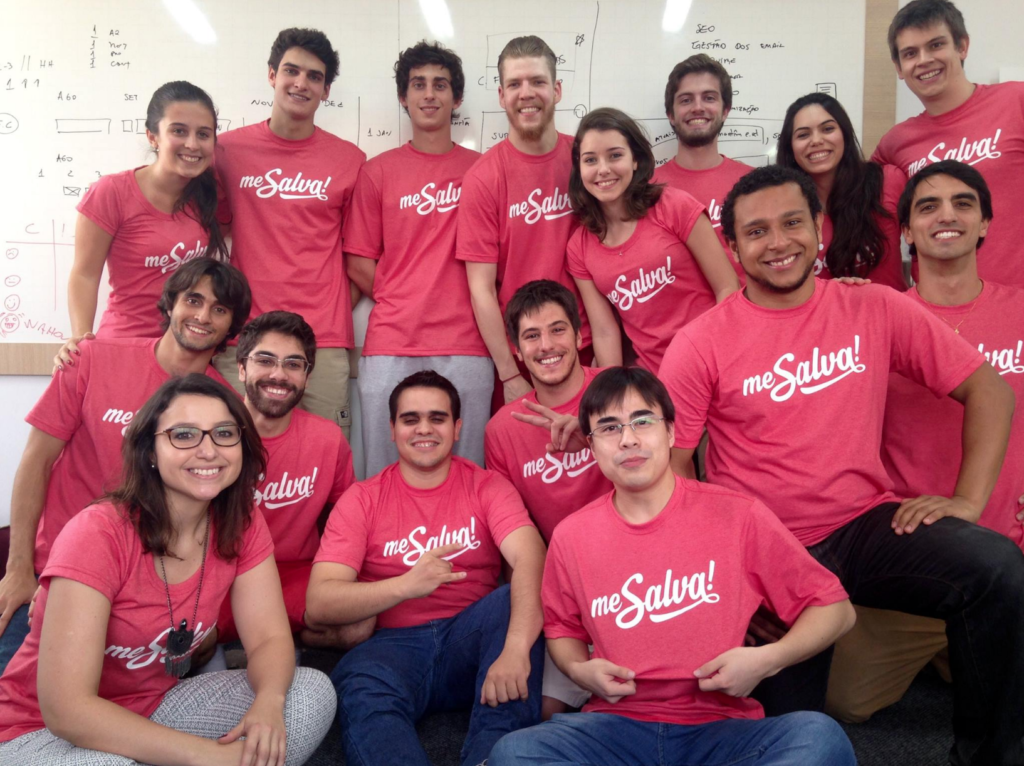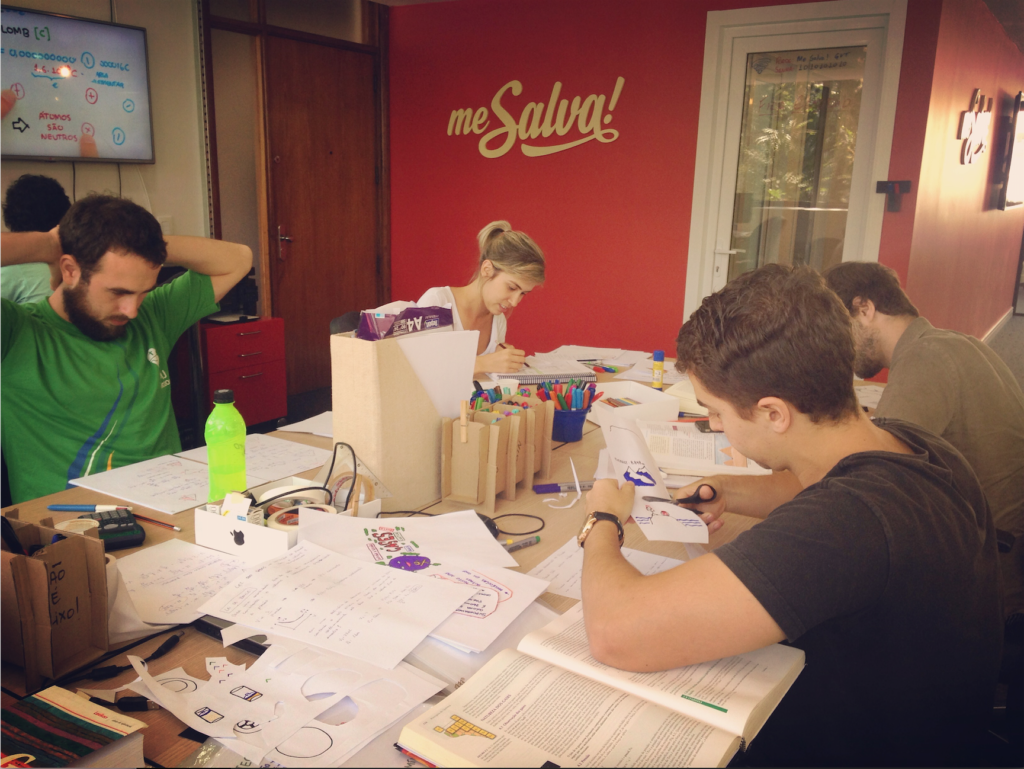Me Salva! is a startup that aims to develop new ways of teaching and increase access to high quality education. Me Salva! provides a full online learning experience (classes, exercises, study plans, e-books, etc.) at a cost of about US$10 a month. The YouTube classes are free. Classes are short (8 to 10 minutes) and include exercises, live classes and question and answer sessions on the platform. Teachers are usually undergraduate students or recent graduates. Me Salva! also monitors students’ performance and develops customised study plans.
Me Salva! started as a YouTube channel in 2011 run by electrical engineering undergraduate student and math tutor Miguel Andorffy (pictured above). At that time, the focus was on giving online classes to help engineering students understand calculus. Feedback from the first students was great and soon after classes focusing on other topics were added. Me Salva! now has high school and undergraduate classes in engineering, health sciences, law and economics. It also has plans to develop new products targeted at building skills needed by the labour market.

Me Salva! has grown to become the biggest educational YouTube channel in Brazil with over 100 million views of its classes. With 1.2 million YouTube subscribers and 20,000 students on their premium platform, Me Salva! classes are viewed an average of 400,000 times a day. In 2015 it received investment from some venture capital funds to build a sustainable business model and create a better educational platform. In December 2016 it received investments from e.bricks ventures (Brazil) and Kairos (California).
The main educational impact of Me Salva! is on remediation and improving student performance in traditional education; Me Salva! does not offer certification. For example, the rate of non-completion for engineering undergraduate courses in Brazil is very high: more than 50%. The content is complex, teachers are not so good at explaining (university professors are usually better researchers than teachers) and students don’t have a good foundation to build on from high school. The benefits of Me Salva! are predominantly for low/medium income students who are unable to pay for a good traditional school. Public schools in Brazil hold more than 80% of students and the system has many deficiencies: students with low performance in maths, science and languages and high levels of grade repetition and high school dropouts. The top universities are free and run by the government while private universities are very expensive. To get into university, students have to sit a national test called ENEM (like the SAT in America). The test is highly competitive because of the 7 million people who sit it, with only the top performers accepted into the free public universities. Students use Me Salva! classes to prepare for the test because the classes are to the point and easy to understand. Higher income students usually attend private high schools and are able to pay for specific courses to prepare them for ENEM, which cost about US$300 a month.
According to Ramiro Poltosi de Jesus, Chief Operating Officer of Me Salva!, ‘the poor output of the educational system is one of the main factors of the static inequality and overall poverty of the country. The improvement of the system is very difficult given that Brazilian economy is going through its worst recession ever, coupled with a political crisis and cases of systemic corruption. There are a large number of negative feedback loops in the system and, in that scenario, I believe that an innovative business like Me Salva! can be a force of change.’

